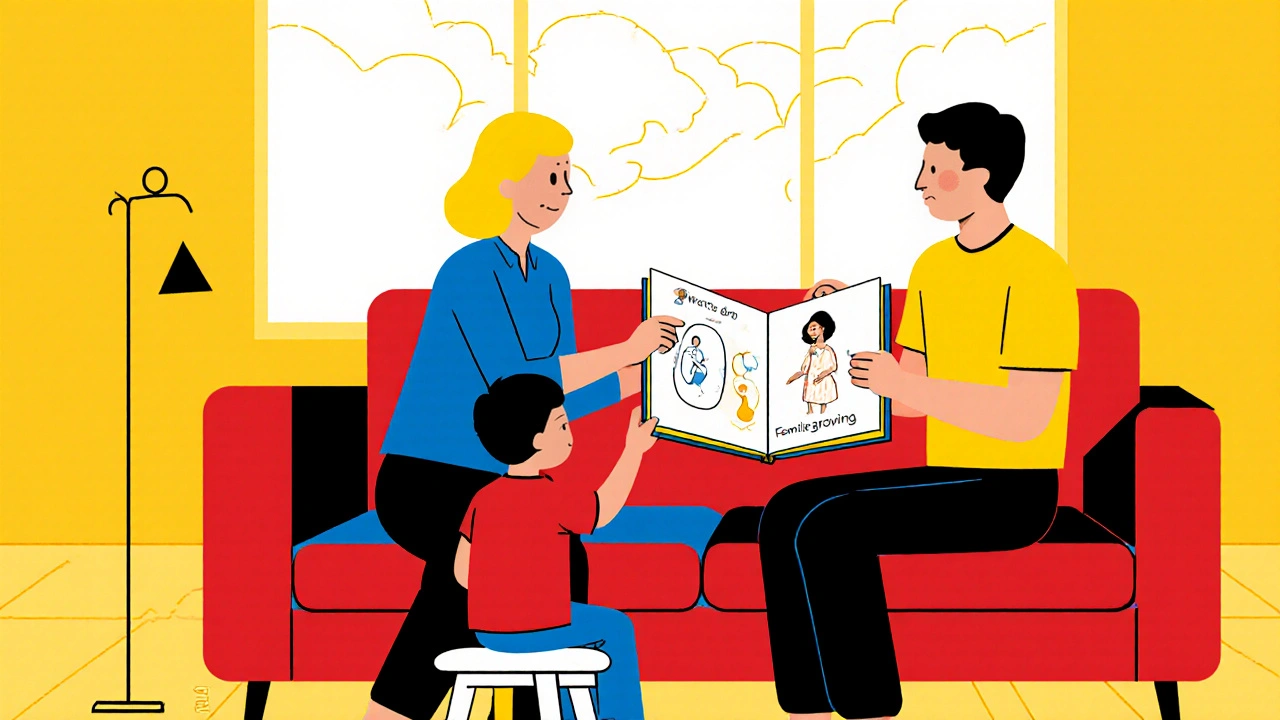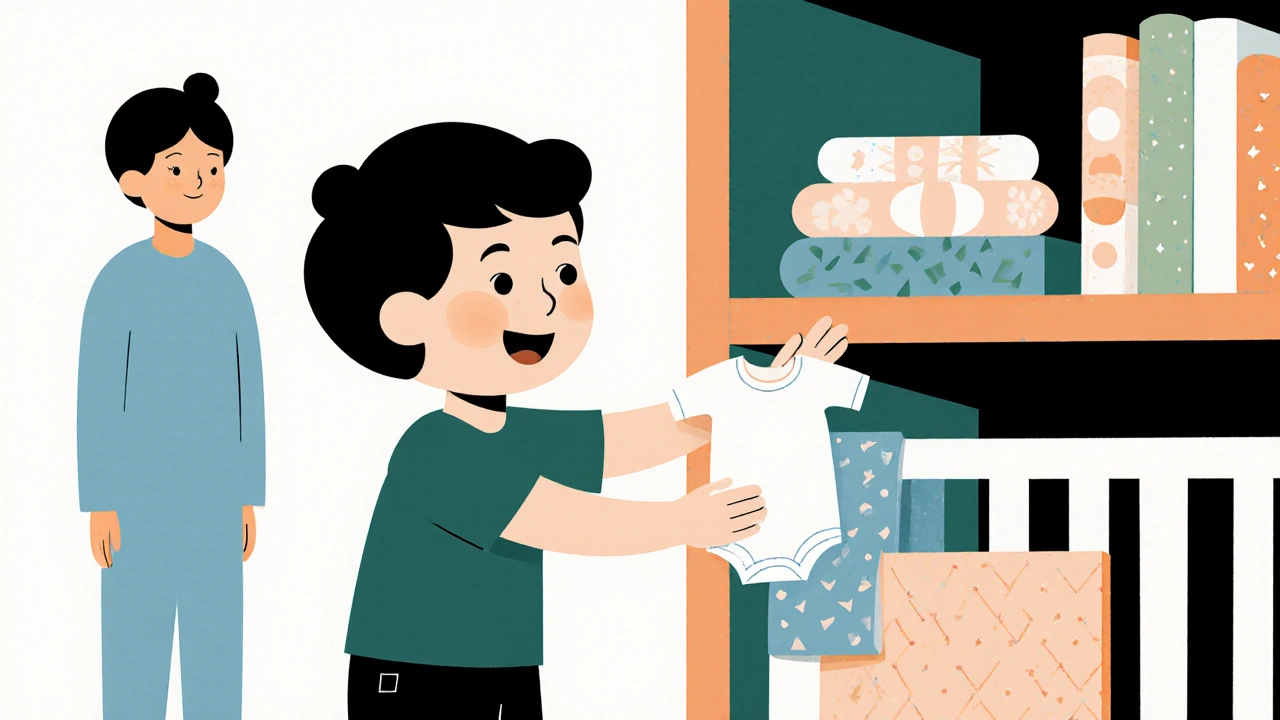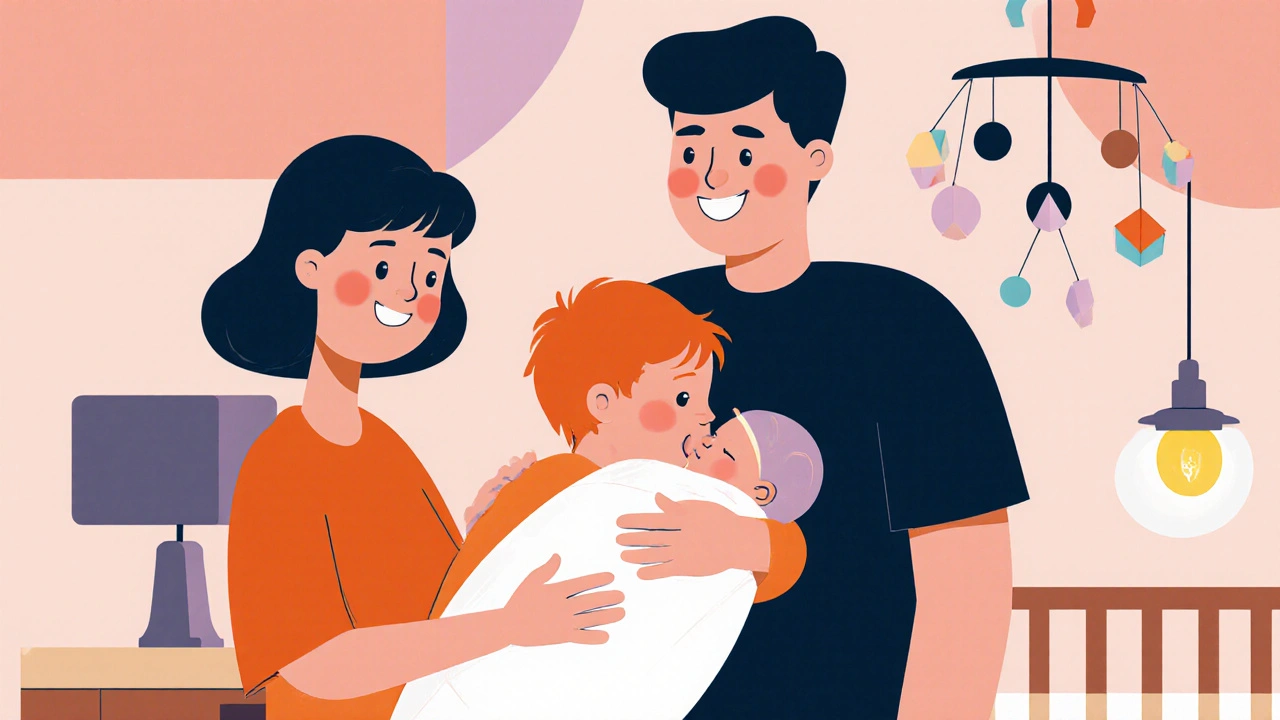Baby Planning Guide: How to Prepare Older Siblings for a New Baby

Welcoming a new baby changes the whole family dynamic, and the biggest upheaval often lands on the shoulders of the older child. Knowing how to prepare older sibling for this shift can turn anxiety into excitement and keep your household running smoothly. Below you’ll find a step‑by‑step plan that blends practical tips with child‑development insight, so the whole family feels ready for the big day.
Baby Planning is a comprehensive process that helps parents anticipate and manage the emotional, logistical, and relational changes that come with adding a newborn to a family that already includes an older child. It’s more than a checklist; it’s about nurturing a sense of inclusion for the older sibling while maintaining a stable routine for everyone.
Key Takeaways
- Start conversations about the baby early, using age‑appropriate language.
- Gradually shift daily routines to accommodate the newborn’s needs.
- Assign meaningful responsibilities that empower the older child.
- Use positive reinforcement to celebrate small wins in sibling bonding.
- Maintain open communication to address jealousy, regression, or sleep changes.
Understanding the Transition
Children view a new baby as a major change to their world. For an Older Sibling a child who already has an established role and routine within the family, the arrival of a newborn can trigger feelings of loss, competition, or fear of reduced attention. Recognizing these emotions early helps you tailor your approach.
Step 1: Involve Your Child Early
Start the conversation months before the due date. Use picture books about families growing, and invite the older child to prenatal appointments when possible. This early exposure demystifies the process and lets the child ask questions.
Step 2: Adjust Routines Gradually
Babies thrive on consistent cues, but they also require flexibility from parents. Begin shifting bedtime and mealtime schedules a few weeks prior, so the older child isn’t shocked by sudden changes after the birth.

Step 3: Age‑Specific Activities
Tailor involvement to the older child’s developmental stage. The table below outlines suitable activities for three common age groups.
| Age Range | Suggested Activity | Why It Helps |
|---|---|---|
| 2‑4 years | Play "baby" with dolls, practice gentle touching | Builds empathy and understanding of infant fragility |
| 5‑7 years | Help choose baby clothes or name ideas | Gives a sense of ownership and pride |
| 8‑12 years | Assist with setting up the nursery, read baby‑care books | Encourages responsibility and practical knowledge |
Step 4: Empower Through Responsibility
Assign tasks that match the child’s ability. Simple duties like fetching a clean diaper, singing a lullaby, or fetching a bottle (under supervision) make the older sibling feel valued. Reinforce every effort with enthusiastic praise.
Step 5: Keep Communication Open
Set a regular “family check‑in” time where everyone can share feelings. Use language like, “I notice you’re feeling upset when we’re busy with the baby-that’s okay. How can I help you feel better?” This validates emotions and teaches problem‑solving.

Managing Common Challenges
Even with thorough planning, setbacks happen. Here’s how to address the most frequent issues.
- Jealousy: Offer one‑on‑one time with the older child, such as a special outing or a “big‑kid” activity that the baby can’t yet do.
- Regression (e.g., potty accidents, clinginess): Stay patient, remind the child of recent successes, and keep routines consistent.
- Sleep disturbances: If the older child wakes due to a crying baby, create a calm “quiet corner” with a nightlight and a favorite stuffed animal.
Post‑Birth Tips (First Weeks)
Maintain the momentum built during planning:
- Allow the older sibling to greet the newborn first thing after birth, using a gentle kiss or a soft “hello.”
- Schedule a short, supervised “baby‑time” after each feeding, so the older child feels included.
- Keep a daily “high‑five” ritual where the older child shares one thing they helped with that day.
- Watch for signs of stress-irritability, changes in appetite-and respond with extra cuddles or a favorite activity.
Quick Checklist for Parents
- Start baby‑talk conversations 3-4 months before due date.
- Attend at least one prenatal appointment together.
- Introduce age‑appropriate books and toys.
- Gradually shift bedtime by 15 minutes each night.
- Assign a “big‑kid” task each day.
- Set up a daily 5‑minute family check‑in.
- Plan a special “just‑you” outing after birth.
- Celebrate small wins with stickers or a progress chart.
When should I start talking to my older child about the new baby?
Begin the conversation about three to four months before the due date. This gives your child time to ask questions, absorb the idea, and feel involved.
What if my older child becomes regressive after the baby arrives?
Regressions are normal. Keep routines consistent, praise any forward steps, and provide extra reassurance through one‑on‑one time.
How can I involve a toddler in baby care without risking safety?
Ask the toddler to fetch a clean diaper or a wipe, always under adult supervision. Use simple, clear instructions and celebrate the effort.
What are good nighttime strategies for an older child who wakes up because of a crying newborn?
Create a quiet corner with a dim nightlight and a favorite stuffed animal. Offer a brief cuddle before returning to bed, then keep the lights low to maintain sleep.
How can I keep the older child excited about the baby after the first month?
Maintain regular “big‑kid” responsibilities, celebrate milestones with a sticker chart, and schedule weekly special outings that are just for the older child.
Sajeev Menon
October 22, 2025 AT 19:10Congratz on the upcomming addition! Starting the baby talk a few months early really helps the older kid get used to the idea and feel included.
Emma Parker
October 24, 2025 AT 12:50Oh wow thats awesome!! I love how you suggest reading picture books-my niece totally blew up with excitement when we read *Guess How Much I Love You* together. Maybe try letting the older sibling pick out a special plush for the baby, it's a cute way to bond!
Joe Waldron
October 26, 2025 AT 05:30Great points-pre‑talking about the baby sets expectations; it also reduces anxiety. Introducing the older child to prenatal visits, even briefly, can demystify the process; they feel part of the journey. Gradual routine shifts (e.g., 15‑minute bedtime adjustments) prevent sudden shock. Assigning age‑appropriate tasks builds responsibility-think “big‑kid” label stickers! Lastly, consistent check‑ins keep communication open; kids appreciate being heard.
Wade Grindle
October 27, 2025 AT 23:10Preparing an older sibling for a new baby is a universal challenge that transcends cultural boundaries.
In many East Asian families, the concept of *kanjo*-anticipating change-guides parents to involve children early.
Similarly, in Scandinavian countries, the emphasis on egalitarian parenting encourages shared responsibilities from a young age.
The article’s step‑by‑step framework aligns well with these cross‑cultural practices.
Starting conversations three to four months before birth gives the older child sufficient time to process the news.
Using concrete tools such as picture books or visual calendars helps children visualize the upcoming shift.
When parents invite the older child to a prenatal appointment, it signals inclusion and demystifies medical environments.
Gradual adjustments to bedtime and mealtime routines, shifting by fifteen minutes each night, reduce the shock factor.
Assigning age‑appropriate tasks-like choosing a baby outfit or fetching a clean diaper-provides a sense of ownership.
Positive reinforcement, such as sticker charts or verbal praise, solidifies the child’s confidence in the new role.
Maintaining a daily family check‑in creates a structured space for expressing jealousy or anxiety.
If regression occurs, parents should respond with patience, reaffirming previous successes.
Nighttime disturbances can be mitigated by a quiet corner with a dim light and a favorite stuffed animal.
Post‑birth, a brief supervised baby‑time after each feeding reinforces inclusion without overwhelming the older sibling.
Overall, blending cultural sensitivity with the article’s practical steps fosters a smoother transition for the whole family.
Benedict Posadas
October 29, 2025 AT 16:50Wow, that's soooo helpful!! 👍👍 Can't wait to try the calendar idea-my son will love picking out his own sticker star ⭐
Christa Wilson
October 31, 2025 AT 10:30Love this guide! 🎉 It really makes the whole process feel doable.
John Connolly
November 2, 2025 AT 04:10Indeed, the structured approach outlined here offers measurable milestones for both parents and the older child. Beginning with age‑appropriate dialogues sets a foundation of trust. Incremental routine adjustments minimize disruption, which is crucial for children's sense of security. Assigning tangible responsibilities reinforces the older sibling’s role as a helper, not a competitor. Regular check‑ins serve as feedback loops, allowing parents to address any emerging concerns promptly. Celebrating small victories, perhaps with a simple chart, sustains motivation and reinforces positive behavior.
Tiffany Davis
November 3, 2025 AT 21:50I appreciate the emphasis on maintaining open communication; it’s often overlooked in busy households.
Don Goodman-Wilson
November 5, 2025 AT 15:30Sure, because a daily five‑minute “check‑in” is going to solve the sleep deprivation crisis-nice idea, really.